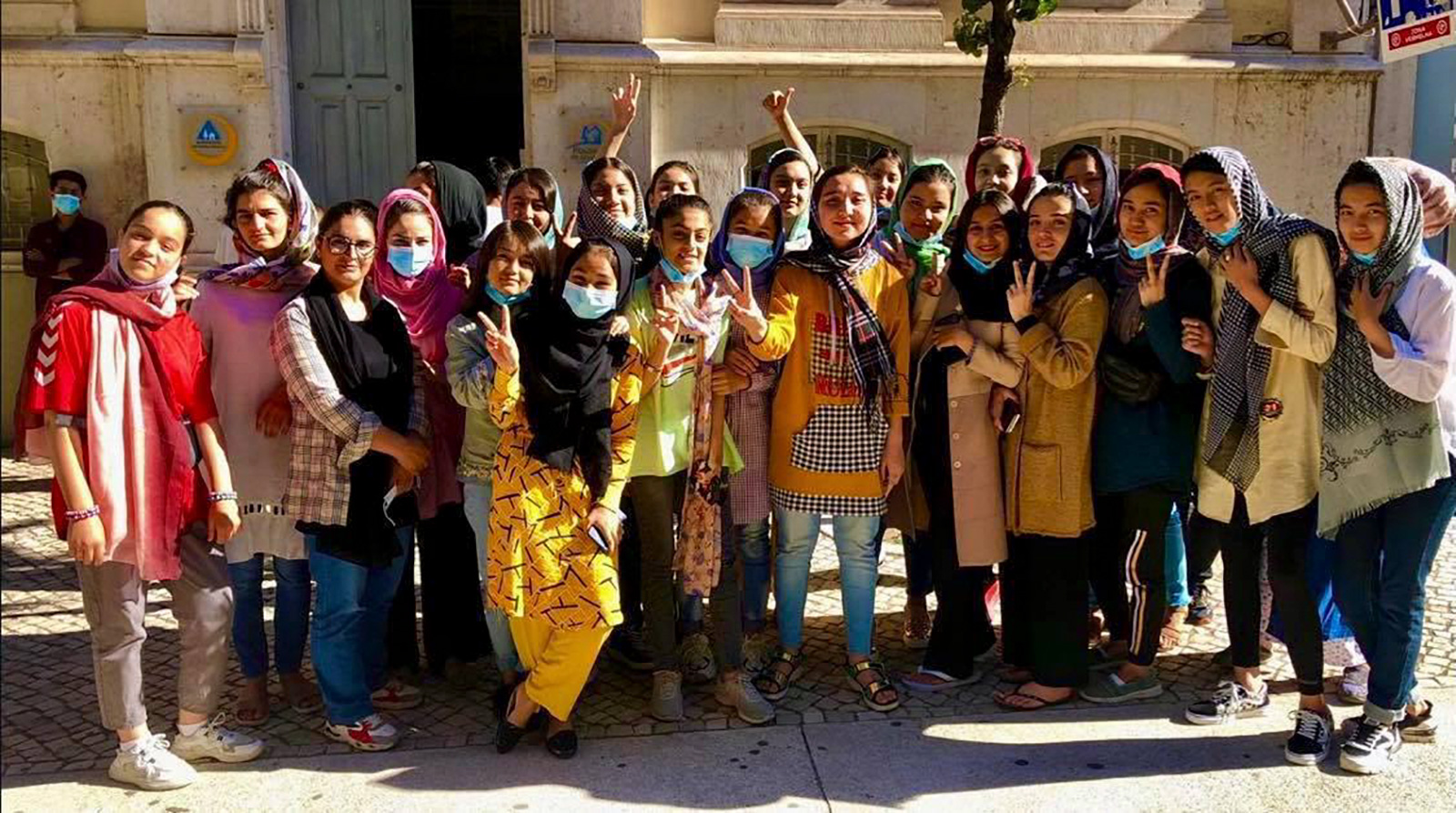Whitefish Organization Aids in Evacuation of Afghanistan National Girls Soccer Team
DeliverFund, founded by a former CIA agent and Flathead Valley resident, fights human trafficking at a local and global scale
By Skye Lucas
It was midnight in north Kalispell when Nic McKinley’s phone buzzed with a text on WhatsApp.
“We’re ready to chart the plane. Where do we send the busses?”
Those buses were to shuttle members of Afghanistan’s National Women’s Youth Soccer Team to Mazar. The team members and their families had been trying to leave the country out of fear: What would their lives become under Taliban rule?
McKinley, founder and CEO of DeliverFund who is also a former CIA agent, spearheaded the rescue mission, called Operation Soccer Balls, and airlifted the national team out of Afghanistan from his nonprofit’s headquarters in Whitefish.
The Whitefish-based counter human trafficking organization transferred the 80 passengers on a 737, and on Sept. 19 the nonprofit safely delivered the 50 Afghan families to Lisbon, Portugal, where they have been granted asylum. The flight was the second private charter to leave Afghanistan since the U.S. military’s withdrawal from the country.
The operation began in mid-August, when the United States Agency for International Development (USAID) approached McKinley and asked for help in evacuating women and children at risk of human trafficking in Afghanistan.
Prior to Operation Soccer Balls, DeliverFund had successfully completed several other Afghan rescue missions through the CIA’s heavily fortified Eagle Base. The same day it was approached with the special task, DeliverFund started strategizing the escape route for the national team from its headquarters in Whitefish.
The Operation Soccer Balls rescue mission was coordinated through an international coalition of independent and governmental agencies, including the USAID, U.S. military intelligence officials, U.S. Sen. Chris Coons, various humanitarian groups, Occidental Petroleum and Hollywood actors.
In addition to devising the evacuees’ getaway, the coalition safeguarded the girls, ages 14-16, and their families. Special agents located and relocated families to different safe hideouts in order to protect team members from the Taliban, who were going door to door and searching the streets for the young girls, according to McKinley.
On Aug. 26, when the team was initially planned to meet their point of contact at Kabul, a suicide bomb exploded at the airport and interrupted their scheduled departure. Their exit strategy fell apart as the U.S. troops expedited their withdrawal; Operation Soccer Balls had to pivot quickly and delay the evacuation.
Until the rescue team received the Taliban’s approval to fly the families out of Mazar, it could not move forward with the mission.
As a backup strategy, operatives would ask the neighboring Pakistan government to facilitate aviation approval from the Taliban. When the agents inquired, officials denied their request, saying they would not get involved. One special agent, however, who goes by M, acquired coveted intelligence: the Pakistani prime minister, Imran Khan, was a big fan of the American conservative radio host, Glenn Beck.
According to McKinley, members of Operation Soccer Balls coordinated sources and pulled strings to get in touch with both Beck and the prime minster. Beck handwrote a letter to Khan asking for a favor to have the girls team be flown out.
It worked.
Shortly after McKinley responded to the midnight text message, the girls and their family departed the country, with a pit stop to refuel in Georgia, located at the intersection of Eastern Europe and Western Asia, eventually stepping foot on Sept. 19 in Portugal, their new home.
For six years, DeliverFund has been fighting human exploitation across the country and locally, from Whitefish to Missoula. The organization works with local and national authorities to find human traffickers and save victims. Its team is equipped with state-of-the-art technology, made possible by donations.
McKinley, a former U.S. Air Force Pararescueman in addition to CIA agent, founded the organization in 2014 shortly after serving for the U.S. government. He served four combat deployments in Afghanistan, and 30 total.
While overseas on a special operation, McKinley and a fellow agent from the Joint Special Operations Command collected intelligence on a human trafficker moving children across the Pakistan-Afghanistan border. To his disappointment, there was little either agent could do with the intelligence.
“We can kill people with flying robots from 6,000 miles away, we also have a bureau dedicated to drug trafficking, yet we aren’t doing anything meaningful to stop human trafficking?” McKinley said in an interview with the Beacon.
A common misconception is that human traffickers largely conduct business overseas, but the reality is that nearly 60,000 people are trafficked into the U.S. every year. In fact, the country is considered one of the worst countries for adult human trafficking, with the top three being Mexico, the U.S. and the Philippines.
“That’s why I founded DeliverFund, to fight human trafficking in the U.S. and abroad,” McKinley said.
For McKinley and his team at DeliverFund, bringing human traffickers to justice will always be a team effort, just like Operation Soccer Balls.
For more information about DeliverFund, visit deliverfund.org.